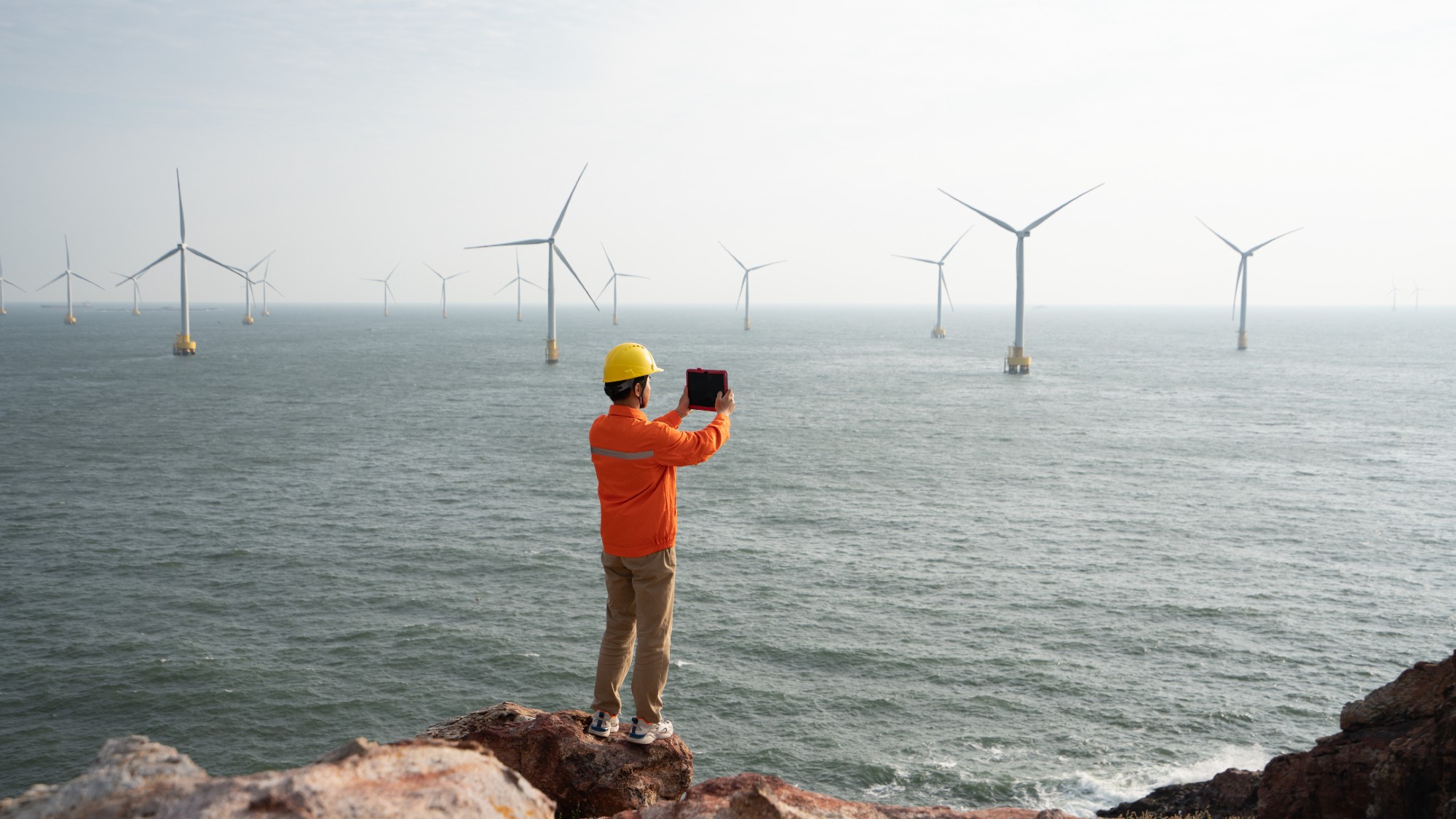Ten ways Labour would run the country differently
Pledges on crime, nursing and green energy unveiled at ‘buoyant’ conference

A free daily email with the biggest news stories of the day – and the best features from TheWeek.com
You are now subscribed
Your newsletter sign-up was successful
Keir Starmer has enjoyed a positive reaction to his keynote speech to the Labour Party conference in Liverpool.
“There is, undoubtedly, a buoyancy here,” observed the BBC’s political editor Chris Mason. The Guardian said that “the Labour leader spoke to a party that smells power again” and Politico described Starmer as “emboldened”.
The Labour leader “proved he has properly listened to the worry pulsing through the country”, wrote Andrew Marr, political editor of The New Statesman.
The Week
Escape your echo chamber. Get the facts behind the news, plus analysis from multiple perspectives.

Sign up for The Week's Free Newsletters
From our morning news briefing to a weekly Good News Newsletter, get the best of The Week delivered directly to your inbox.
From our morning news briefing to a weekly Good News Newsletter, get the best of The Week delivered directly to your inbox.
Here are ten ways that Starmer’s party is promising to change the way the country is run.
1. Restore top rate tax to pay for nurses
Labour has promised to create an additional 10,000 nursing and midwifery placements and double the number of district nurses qualifying in England every year. The shadow chancellor, Rachel Reeves, said she would reinstate the top 45% rate of income tax to pay for it. “Labour gets it,” Unison’s general secretary, Christina McAnea, told Nursing Times.
2. Great British Energy
Starmer pledged to set up a state-owned energy company if Labour enters government, putting his “green credentials at the centre of the next election campaign”, said The Times. Bankrolled with £2bn from the Treasury, Great British Energy would be “charged with investing in and even running green energy projects across the country”.
3. Free primary school breakfast clubs
Every primary school child in England would be offered access to fully funded breakfast clubs under Labour. Shadow education secretary Bridget Phillipson said the plan would be the “first step on the road to a modern childcare system”. ITV News noted that a child-poverty charity urged Labour to go further and commit to universal after-school activities as well.
A free daily email with the biggest news stories of the day – and the best features from TheWeek.com
4. Face-to-face GP appointments
GPs will be forced to provide face-to-face appointments for every patient who wants one, said Labour. Currently, one in three GP appointments are conducted online or over the phone. “We will require GPs to give patients the choice of where and when they want their appointments,” shadow health secretary Wes Streeting told The Mirror. “Patients must come first.”
5. Neighbourhood policing
Labour would hire an extra 13,000 police officers if it wins the next election, the shadow home secretary pledged. Yvette Cooper said she would recruit “more police officers, PCSOs and special constables in an effort to cut crime and restore confidence in the force”, said the Evening Standard. “We have seen the clock hugely turned back on the policing in our communities that Labour brought in,” she said.
6. More home ownership
Starmer said Labour would set a target of 70% home ownership, with local people getting first refusal on properties, rather than buy-to-let landlords and second home owners. He said Labour would help buyers on to the housing ladder with mortgage guarantees, The Guardian reported. This would mean “hundreds of thousands of new homeowners in the first five years of a new Labour government”, said Inside Housing.
7. Specialist rape courts
A Labour government would roll out specialist rape courts, the party said. Shadow justice secretary Steve Reed said only one in 100 reported rapes are making it to trial and he pledged to fix the “broken system”. The Law Gazette said: “Justice featured heavily on day one of Labour’s annual conference.”
8. Aid to prioritise climate
Labour said it would also pass a law to require the UK’s overseas aid spending to prioritise action to tackle the climate crisis. The Independent said that a Starmer government would take action against “greatest threat to humanity”. The party would also restore the commitment for 0.7% of national income to go to aid.
9. Trade deal benefits
Labour would require British trade negotiators to ensure all regions of the UK benefit from new agreements, said shadow international trade secretary Nick Thomas-Symonds. Official data shows just 1.4% of exporters are from the North East and less than 5% are from the East Midlands. Politico said the party hoped “to paint the governing Conservatives as desperate to get deals over the line regardless of their trade-offs”.
10. Hillsborough law
The party would introduce a “Hillsborough law” to ensure victims of major tragedies get the same support “as the authorities that failed them”, announced Reed. The announcement was greeted with a standing ovation from Hillsborough campaigners who lost relatives in the 1989 football disaster, said the BBC.
Chas Newkey-Burden has been part of The Week Digital team for more than a decade and a journalist for 25 years, starting out on the irreverent football weekly 90 Minutes, before moving to lifestyle magazines Loaded and Attitude. He was a columnist for The Big Issue and landed a world exclusive with David Beckham that became the weekly magazine’s bestselling issue. He now writes regularly for The Guardian, The Telegraph, The Independent, Metro, FourFourTwo and the i new site. He is also the author of a number of non-fiction books.
-
 The ‘ravenous’ demand for Cornish minerals
The ‘ravenous’ demand for Cornish mineralsUnder the Radar Growing need for critical minerals to power tech has intensified ‘appetite’ for lithium, which could be a ‘huge boon’ for local economy
-
 Why are election experts taking Trump’s midterm threats seriously?
Why are election experts taking Trump’s midterm threats seriously?IN THE SPOTLIGHT As the president muses about polling place deployments and a centralized electoral system aimed at one-party control, lawmakers are taking this administration at its word
-
 ‘Restaurateurs have become millionaires’
‘Restaurateurs have become millionaires’Instant Opinion Opinion, comment and editorials of the day
-
 How corrupt is the UK?
How corrupt is the UK?The Explainer Decline in standards ‘risks becoming a defining feature of our political culture’ as Britain falls to lowest ever score on global index
-
 Will Peter Mandelson and Andrew testify to US Congress?
Will Peter Mandelson and Andrew testify to US Congress?Today's Big Question Could political pressure overcome legal obstacles and force either man to give evidence over their relationship with Jeffrey Epstein?
-
 How long can Keir Starmer last as Labour leader?
How long can Keir Starmer last as Labour leader?Today's Big Question Pathway to a coup ‘still unclear’ even as potential challengers begin manoeuvring into position
-
 What is at stake for Starmer in China?
What is at stake for Starmer in China?Today’s Big Question The British PM will have to ‘play it tough’ to achieve ‘substantive’ outcomes, while China looks to draw Britain away from US influence
-
 Can Starmer continue to walk the Trump tightrope?
Can Starmer continue to walk the Trump tightrope?Today's Big Question PM condemns US tariff threat but is less confrontational than some European allies
-
 The high street: Britain’s next political battleground?
The high street: Britain’s next political battleground?In the Spotlight Mass closure of shops and influx of organised crime are fuelling voter anger, and offer an opening for Reform UK
-
 Alaa Abd el-Fattah: should Egyptian dissident be stripped of UK citizenship?
Alaa Abd el-Fattah: should Egyptian dissident be stripped of UK citizenship?Today's Big Question Resurfaced social media posts appear to show the democracy activist calling for the killing of Zionists and police
-
 Why is Trump killing off clean energy?
Why is Trump killing off clean energy?Today's Big Question The president halts offshore wind farm construction